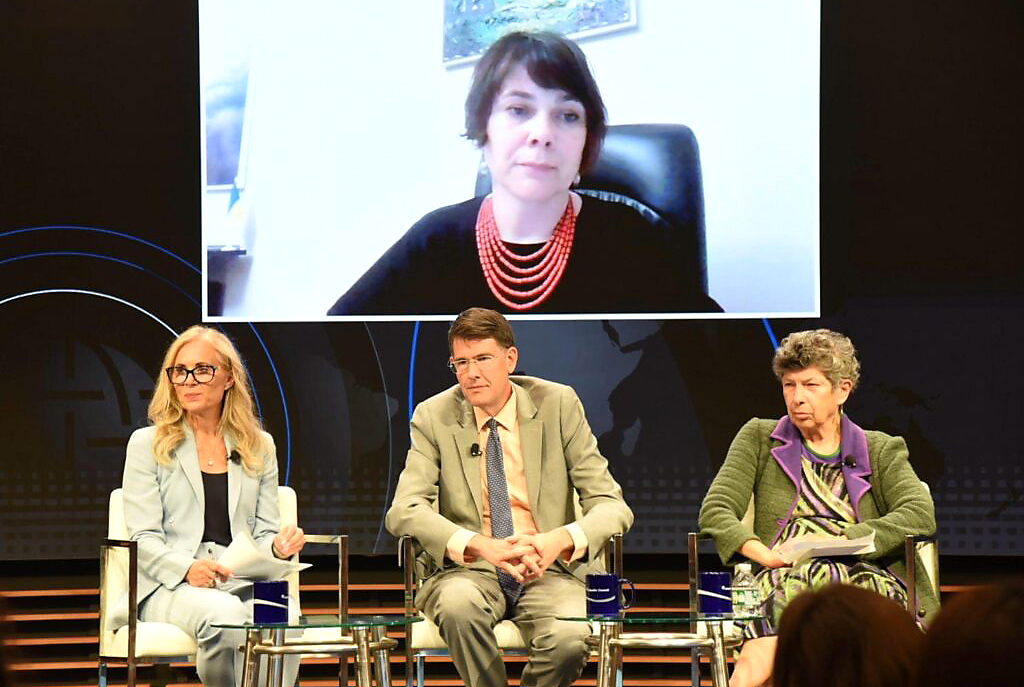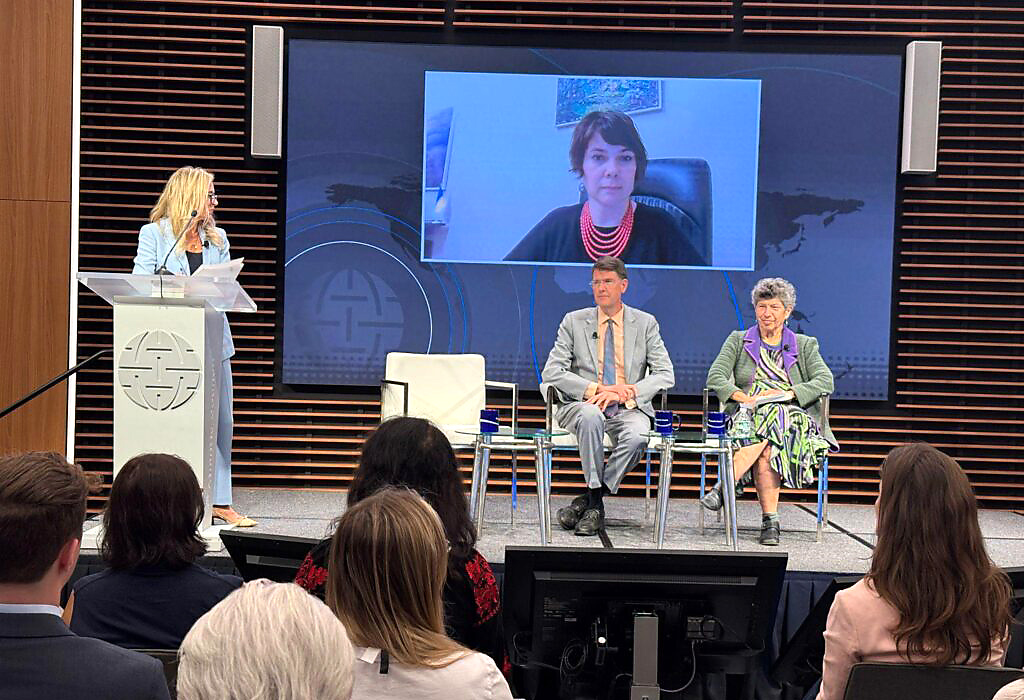Washington Hosts Discussion on Protecting Ukraine’s Cultural Assets from Russia

On August 5, leading international experts, diplomats, and scholars gathered in Washington for a public discussion to discuss the consequences of Russian aggression for Ukraine's cultural heritage and ways to protect it, The Gaze reports, citing the Ministry of Culture and Strategic Communications of Ukraine.
On Tuesday, the Atlantic Council think tank held a public discussion in Washington on “Investigating Russian Aggression Against Ukraine's Cultural Heritage” that was attended by leading diplomats, academics, experts, and representatives of international organizations.

One of the key topics of discussion was the inclusion of a Ukrainian artifact, a bone figurine of a bull from the Mariupol Neolithic burial ground dating back to the 6th millennium BC, in The Antiquities Coalition's global list of “Ten Most Wanted Antiquities.”
The figurine was found in the 1930s by archaeologist Mykola Makarenko and was kept in the Mariupol Local History Museum. However, after the museum was destroyed as a result of Russia's full-scale invasion in 2022, the artifact disappeared.
“The inclusion of the artifact in the international list underscores the critical importance of protecting, returning, and restituting Ukraine's looted cultural property,” the statement reads.
Galina Grygorenko, First Deputy Minister of Culture of Ukraine, emphasized that Russia's attacks on cultural heritage are part of a deliberate strategy to destroy Ukrainian identity. She also highlighted the large-scale illegal removal of artifacts, pseudo-restorations, and excavations in the occupied territories, noting that the damage from these actions is estimated at millions of dollars.
During the event, key initiatives to support Ukrainian cultural heritage were presented, including the Ukrainian Cultural Heritage Fund, which collects resources for its protection and restoration, and the International Alliance for Cultural Resilience, created to strengthen the resilience of cultural institutions.
Grygorenko stressed the importance of digital databases for documenting, preserving, and returning cultural property. Thanks to international support, more than 630,000 museum objects have been evacuated from dangerous areas and temporarily placed in Ukraine and abroad, particularly in Poland, Germany, France, and the United Kingdom.
In addition, international exhibitions of Ukrainian culture are being organized, and large-scale projects are being implemented to digitize millions of artifacts and over 100,000 immovable heritage objects.
The First Deputy Minister of Culture of Ukraine also called on the international community to actively participate in these projects, emphasizing that the preservation of Ukraine's cultural heritage cannot wait until the end of the war, as the destruction is ongoing and requires joint efforts.
As The Gaze reported earlier, Ukraine has imposed sanctions on 15 directors of major Russian museums involved in the illegal appropriation and exploitation of Ukrainian cultural heritage in occupied territories, aiming to prevent their influence in international cultural institutions.